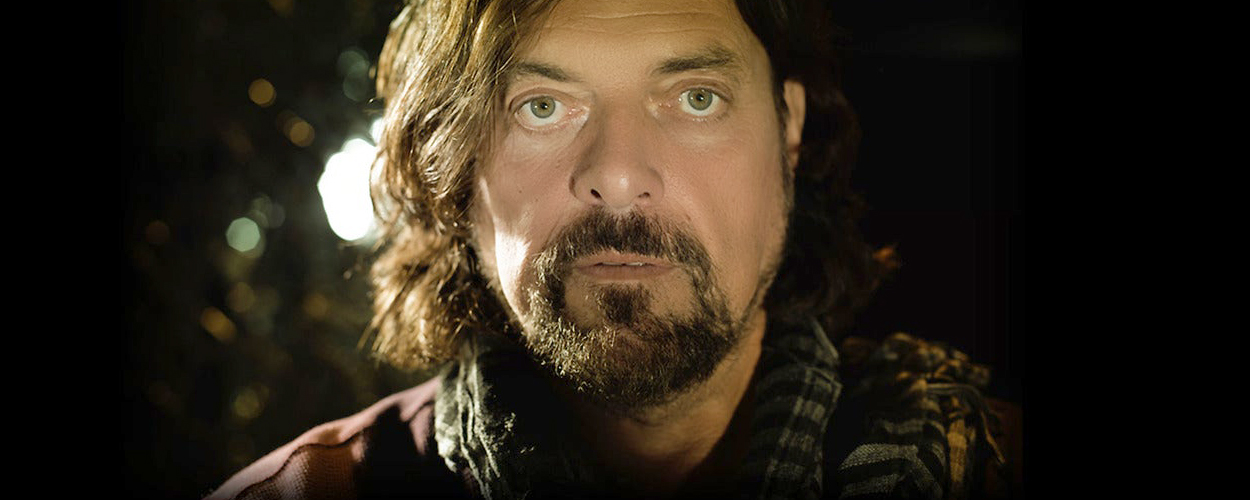This website uses cookies so that we can provide you with the best user experience possible. Cookie information is stored in your browser and performs functions such as recognising you when you return to our website and helping our team to understand which sections of the website you find most interesting and useful.
Artist News Business News Legal
Alan Parsons retains preliminary injunction over former business partner accused of trademark infringement
By Chris Cooke | Published on Thursday 18 March 2021

The Eleventh Circuit court of appeal in the US has upheld a preliminary injunction in the ongoing dispute between musician and producer Alan Parsons and his former business partner John Regna.
Having first built his reputation via studio work with the likes of The Beatles and Pink Floyd, Parsons enjoyed success in the 1970s and 1980s through his creative partnership with the late Eric Woolfson. That collaboration used the moniker The Alan Parsons Project.
Between 2009 and 2018, Parsons pursued various solo projects via his partnership with Regna’s company World Entertainment Associates Of America. However, the two men ended their alliance in 2018 because, according to Parsons, of “Regna’s erratic and intolerable behaviour”.
After they stopped working together, Regna put together a live show featuring session musicians who worked with the Alan Parsons Project back in the day and then started promoting that show using variations of Parsons’ brand.
That led to litigation filed by Parsons in January last year, accusing Regna of infringing his trademarks, breaching past contracts and participating in unfair competition in a way that has “caused and is causing Parsons many millions of dollars in actual damages”.
Parsons also stressed that the performers involved in Regna’s shows were simply work-for-hire musicians who had no actual claim to the Alan Parsons Project name.
Regna tried to have the lawsuit dismissed on jurisdiction grounds. His dispute with Parsons actually began in Europe when he staged one of his session musician shows in Barcelona. Parsons had sought an injunction to stop that concert through the Spanish courts, and Regna had responded with his own legal filing in the UK.
On that basis, Regna’s lawyers argued that, with litigation ongoing in London, a district court in Florida should not intervene.
However, the district court disagreed, with the judge pointing out: “Here there are two US defendants (Regna and WEAA) who are allegedly violating US trademarks by: running their business in the US, soliciting former musicians to play in an ‘imposter band’ in the US, maintaining infringing internet domains in the US, and drafting and sending emails from the US to solicit infringing bookings”.
Shortly after declining to dismiss Parsons’ lawsuit, the district court also granted the musician a preliminary injunction that banned Regna from making use of any of the Parsons trademarks when promoting his shows.
Regna quickly sought to appeal that injunction, taking the matter to the Eleventh Circuit. He noted that, in order to secure the preliminary injunction, Parsons was – among other things – required to demonstrate that there was “a substantial likelihood” that he would be successful in his wider trademark infringement lawsuit.
Parsons hadn’t met that requirement, Regna argued, because “Parsons lacks standing to sue for infringement of the Parsons marks” and Regna himself “is entitled to a nominative fair use defence”.
The first point relates to whether or not Parsons has trademark rights for Regna to infringe. Both the district court and the Eleventh Circuit have now concurred that he does. They also rejected an argument that a deal Parsons did with Woolfson back in the day saw him assign away those rights, concluding that that agreement only related to certain recorded music projects.
As for the nominative fair use defence in US trademark law, Regna claimed that “his use of the Parsons marks was limited to references to the historical associations between [the musicians he hired] and The Alan Parsons Project”. So, his use of the Parsons name was a simple statement of fact, and therefore should be covered by the fair use exclusion under trademark rules.
Both the district court and the Eleventh Circuit relied on a test for the nominative fair use defence crafted in the Ninth Circuit appeals court. That says the defence can be used if “[the] plaintiff’s product or service is not readily identifiable without use of the trademark; defendants used only so much of the mark as is reasonably necessary to identify the plaintiff’s product or services; and the user of the mark does nothing that would, in conjunction with the mark, suggest sponsorship or endorsement by the trademark holder”.
The Eleventh Circuit then concluded: “Regna failed to satisfy that test because he failed to establish that he ‘did nothing that would, in conjunction with the mark, suggest sponsorship or endorsement by the trademark holder’. As the district court noted, ‘the band names and descriptions used by Regna are carefully crafted to draw a close, unmistakable association with The Alan Parsons Project to a degree unwarranted by the historical record'”.
With all that in mind, the appeals court ruled that the preliminary injunction against Regna should stand.
For his part, Parsons asked that the Eleventh Circuit deem this dispute an ‘exceptional case’, because if it did he would be able to recover his legal costs in relation to the appeal from Regna. However, the appeal judges declined to do that at this time, given the wider dispute continues at the district court level.
Noting precedent that says district courts are best equipped to “determine whether a case is ‘exceptional’ … considering the totality of the circumstances”, the Eleventh Circuit said: “In light of the preliminary stage of this litigation, we decline to determine in the first instance whether this case is an ‘exceptional’ one, and we leave that determination to the district court”.





